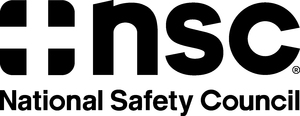ITASCA, Ill., March 8, 2018 /PRNewswire-USNewswire/ -- As most parts of the country prepare to turn clocks ahead one hour, the National Safety Council is cautioning employers that workers in certain positions and industries who already have a higher risk of being drowsy may be even more tired on Monday than usual. According to a new NSC report, Tired at Work: How fatigue affects our bodies, shift workers, medical staff, emergency responders, military personnel, any worker over age 40, and transportation professionals – especially those who work rotating or night shits – always are at increased risk for circadian misalignment, which occurs when we force ourselves to stay awake at hours when our bodies believe we should be sleeping. Hence, losing an hour of sleep may hurt this group of workers most.
Tired at Work is released just as daylight savings time begins and Americans lose one hour of sleep. Research shows that fatal car crashes – already more likely if we are tired – increase on the Monday following the time change.i
"Mondays are always tough, but this one could be deadly," said Emily Whitcomb, senior program manager of the fatigue initiative at the National Safety Council. "We encourage employers to educate employees about the importance of sleep, and this is the perfect time of the year to implement a sleep health program. When it comes down to it, we are not at our best when we are tired."
An NSC probability-based survey released last July found 43 percent of Americans say they do not get enough sleep to mitigate critical risks that can jeopardize safety at work and on the roads, including the ability to think clearly, make informed decisions and be productive.
On Monday, employers should look for signs of fatigue among their entire workforce but especially those workers who:
- Are shift workers
- Work long shifts
- Put in long weeks
- Do not get regular rest breaks
- Get less than 12 hours off between shifts
- Have sleep deficiencies
- Work high-risk hours, such as overnight or in the early morning
- Have physically or mentally demanding jobs
- Experience long commutes
Lack of sleep costs $410 billion annually in societal expensesii, and fatigue has a different price tag for each employer. The National Safety Council developed the Fatigue Cost Calculator to help employers determine how much a drowsy workforce is impacting their bottom line and what we can do to solve the problem. The Council also developed the Fatigue Kit for employers interested in educating their workforce about fatigue and how to get better, healthier sleep.
More information about fatigue is available at nsc.org/fatigue.
About the National Safety Council
The National Safety Council (nsc.org) is a nonprofit organization whose mission is to eliminate preventable deaths at work, in homes and communities, and on the road through leadership, research, education and advocacy. Founded in 1913 and chartered by Congress, NSC advances this mission by partnering with businesses, government agencies, elected officials and the public in areas where we can make the most impact.
Connect with NSC:
Facebook
Twitter
LinkedIn
YouTube
i Allen, R. P., & Varughese, J. (2001, January). Fatal accidents following changes in daylight savings time: the American experience. Sleep Medicine, II(1), 31-36. Retrieved from https://www.sciencedirect.com/science/article/pii/S1389945700000320
ii Hafner, M., Stepanek, M., & Taylor, J. (2016). Why Sleep Matters - The economic costs of insufficient sleep: a cross-country comparative analysis. Santa Monica: RAND Corporation.
SOURCE National Safety Council
Related Links
WANT YOUR COMPANY'S NEWS FEATURED ON PRNEWSWIRE.COM?
Newsrooms &
Influencers
Digital Media
Outlets
Journalists
Opted In



Share this article